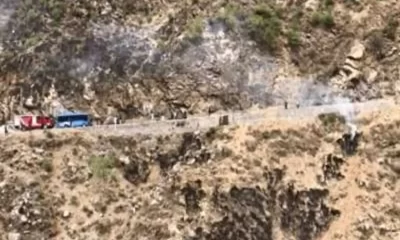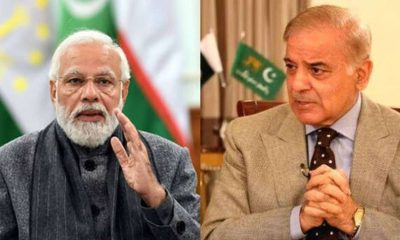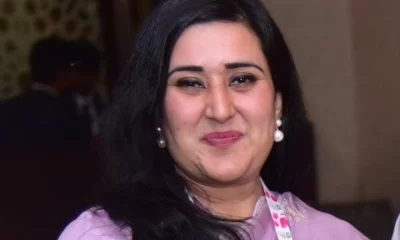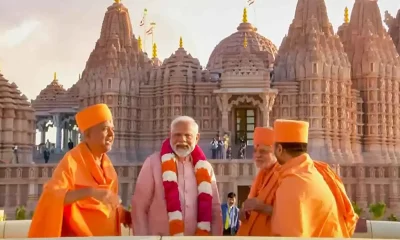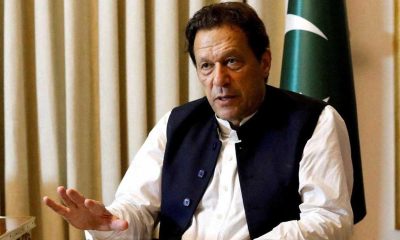Latest world news
India attends Organisation of Islamic Cooperation meet, Pakistan boycotts

[vc_row][vc_column][vc_column_text]Islam means peace, fight against terror not against any religion: Sushma Swaraj at OIC
In a significant diplomatic gain for India, External Affairs Minister Sushma Swaraj today (Friday, March 1) became the first Indian minister to address a summit of the Organisation of Islamic Cooperation (OIC) states at Abu Dhabi.
The minister was invited as a guest of honour by the UAE to the the two-day 46th session of the Council of Foreign Ministers of the 57-member body.
Pakistan foreign minister Shah Mahmood Qureshi stayed away from the meet, saying it objected to India’s presence at the event. He said that lower ranking officials would attend to represent Pakistan’s interests.
Addressing the 46th session of Council of Foreign Ministers of the OIC at Abu Dhabi, Swaraj said that India, Pakistan and Bangladesh have all been affected by terrorism. She said terrorism is destroying lives, destabilising regions and putting the world at great peril.
“Terror reach is growing and the toll it is taking is increasing. This is not a clash of civilisations or cultures, but a contest of ideas and ideals. As PM Narendra Modi has often said, it is a struggle between the values of humanism and the forces of inhumanity,” she said.
Terrorism, she said, is driven by distortion of religion: “Terrorism and extremism bear different names and labels. It uses diverse causes. But in each case, it is driven by distortion of religion, and a misguided belief in its power to succeed.”
Also Read: Bollywood celebs reaction over IAF pilot ‘Abhinandan Varthaman’ returning India
“Just as Islam means peace, none of the 99 names of Allah mean violence. Similarly every religion stands for peace,” she said.
She quoted the ancient Sanskrit scripture ‘Rig Veda’ to say that pluralism is crucial to India. “Ekam sat vipra bahudha vadhanti”, which means “God is One but learned men describe him in many ways,” she said.
“I come from the land of Mahatma Gandhi where every prayer ends with call for ‘shanti’ that is peace for all. I convey our best wishes, support and solidarity in your quest for stability, peace, harmony, economic growth and prosperity for your people and world,” she said.
Urging countries to come together and block terror funding, Sushma Swaraj said, “If we want to save humanity, then we need to tell nations supporting terror that they need to stop funding terror organisations.”
She further emphasised on the fact that the fight against terror cannot be won by war or intelligence.
Upholding the diversity of India, Sushma Swaraj said that India has always embraced pluralism. Muslims in India practice their respective beliefs and live in harmony with each other and with their non-Muslim brothers. It’s this appreciation of diversity and coexistence that has ensured that very few Muslims in India have fallen prey to poisonous propaganda of radicalist and extremist ideologies.”
Lauding the Islamic countries for their efforts if stifling terrorism, Sushma Swaraj said, “Choices you (OIC) make have a huge inpact on humanity. We are with you.”
“Terrorism is destroying lives, destabilising regions and putting the world at great peril. Terror reach is growing and the toll it is taking is increasing,” Swaraj said.
Bringing up the issue of terrorism at the conclave, Swaraj said that the peril of terrorism is growing in Pakistan, India and Bangladesh. “We see the terrible face of terror. We are witnessing the terrible and senseless destruction of terrorism. Terror is growing and we are seeing the terrible face of terror in many of our countries.”
Sushma Swaraj said that she is honoured to join colleagues from nations that represent a great religion and ancient civilisations. “I stand here as a representative of the land that has been a mountain of knowledge, beacon of peace, the source of faith & traditions, home to many religions and one of the major economies.”
“India has excellent political ties with many as a result of our economic growth. We share warm times with our immediate Islamic neighbours like Bangladesh and Afghanistan. Presently gulf countries are our biggest markets and energy partners,” said Swaraj
Also Read: IAF pilot Wing Commander Abhinandan Varthaman to be released tomorrow, says Imran Khan
Thanking member nations of OIC for inviting India and hearing its voice, Sushma Swaraj said, “OIC members constitute one-fourth of the United Nations and almost a quarter of humanity. India shares much with you, many of us have shared dark days of colonialism.”
Sushma Swaraj in her opening speech acknowledged that Muslims peacefully live in India in harmony with different other cultures. “Our Muslim community is a microcosm of India. They speak different languages and have different culinary tastes. Very few Muslims in India have fallen prey to terror and terrorism,” she said.
While India attended the Islamic organisation meet, Pakistan minister Shah Mehmood Qureshi said that he will skip the Organisation of Islamic Cooperation (OIC) meet in Abu Dhabi because India has been invited to the event. “I will not attend Council of Foreign Ministers as a matter of principle for having extended invitation as a Guest of Honour to Sushma Swaraj,” Shah Mahmood Qureshi said in parliament, adding that other officials would attend to represent Pakistan’s interests.
India, on its part, said that the invitation was taking forward the strong bilateral ties that UAE and India shared and it was also a “welcome recognition of the presence of 185 million Muslims in India and of their contribution to its pluralistic ethos and of India’s contribution to the Islamic world.”
The invitation to India is seen as a key foreign policy success in efforts to strengthen relations with Arab and Muslim-majority countries. OIC states it is the collective voice of the Muslim world and works to safeguard their interests. With permanent representatives to the United Nations and the European Union, it has 57 member states.
Islamabad had conveyed its concerns over New Delhi’s participation at the OIC in the wake of the Indian air strike on a Jaish-e-Mohammed (JeM) camp at Balakot on Tuesday. Acting largely due to pressure from Pakistan, OIC had condemned the air strike as an “incursion and aerial violation” and urged both countries to seek peaceful solutions to the crisis through dialogue.
In a response to the bloodiest terror attack in the history of insurgency in Kashmir in which 40 jawans were killed in a fidayeen attack using vehicle borne explosive device, India on February 26, announced that it had destroyed Jaish-e-Mohammed (JeM, which had owned responsibility for the terrorist act) training camp in Balakot in Pakistan.
A day later, Pakistan Airforce struck India in a tit-for-tat move. The Indian Air Force retaliated and in the ensuing dogfight, IAF pilot Abhinandan was captured by Pakistani officials. He is all set to be released later on Friday.
During the strikes and counter strikes, Qureshi had threatened to boycott the OIC if the invite to India was not retracted. He informed his Parliament, on Friday, that the UAE said that the invite would be “hard to retract”, thus forcing him to be remain absent from the OIC, of which his country is a founding member.
Pakistan has been staunch opponent to India getting even an observer status, let alone become a member of the OIC.[/vc_column_text][/vc_column][/vc_row]
India News
Sri Lankan Minister Douglas Devananda says statements on reclaiming Katchatheevu island from Sri Lanka have no ground
Devananda told the media on Thursday that it is not unusual to hear such claims and counterclaims about Katchatheevu as elections are taking place in India.
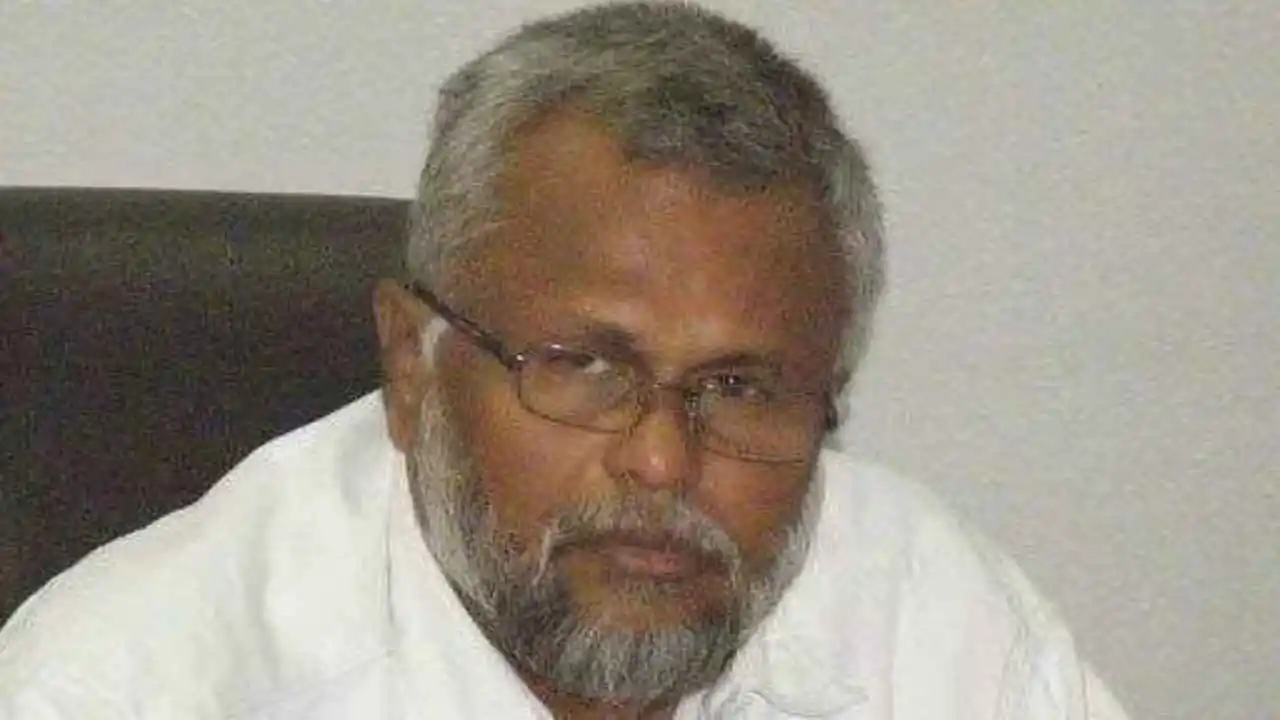
Sri Lankan Minister Douglas Devananda has said the statements from some political leaders in India on reclaiming Katchatheevu from the island nation have no ground. He told the media on Thursday that it is not unusual to hear such claims and counterclaims about the strategic island as elections are taking place in India.
The Sri Lankan Minister said he thought India is acting on its interests to secure this place to ensure Sri Lankan fishermen would not have any access to that area and that Sri Lanka should not claim any rights in that resourceful area. According to the 1974 agreement, Devananda said Indian and Sri Lankan fishermen can go fishing in the territorial waters of both countries until the pact was reviewed and amended in 1976.
The amended agreement resulted in fishermen from both countries being barred from fishing in neighboring waters. India’s ministry of External Affairs (MEA) on Thursday steered clear of the row surrounding Katchatheevu island. To a volley of questions on the Katchatheevu issue, MEA spokesperson Randhir Jaiswal reffered to External affairs Minister S Jaishankar’s recent comments on the matter.
He said he would like to talk about the issue that has been raised. He added the External Affairs minister has spoken to the press here in Delhi and also in Gujarat and has clarified all the issues. He said everyone should look into the press engagements and they would find the answers to their questions there.
The remarks from Devananda, a Sri Lankan Tamil, came days after the Narendra Modi government accused the Congress and its ally DMK in Tamil Nadu of overlooking national interests by handing over Katchatheevu island to Sri Lanka in 1974. The BJP has also been slamming the 2 parties for not ensuring the rights of the fishermen wanting to fish in waters around the island.
India News
US reiterates its call for fair, transparent, legal process for Delhi CM Arvind Kejriwal, speaks on Congress frozen accounts
The US spokesperson said that they are also aware of the Congress party’s allegations that tax authorities have frozen some of their bank accounts in a manner that will make it challenging to effectively campaign in the upcoming elections.
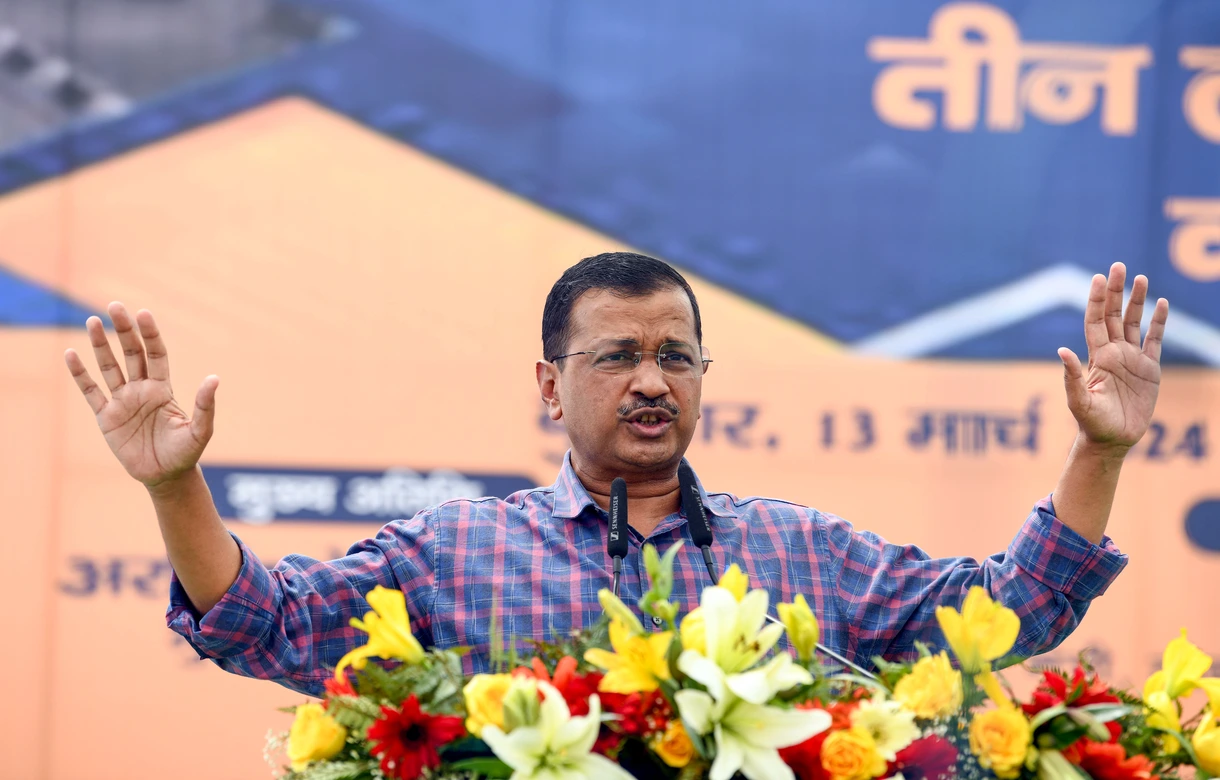
A day after India summoned an US diplomat over their remarks on the arrest of Delhi Chief Minister Arvind Kejriwal in the liquor policy case, the US reiterated its call for fair, transparent, timely legal processes on Wednesday.
Responding to questions on India summoning Gloria Berbena, the US Acting Deputy Chief of Mission in New Delhi, US State Department spokesperson Matthew Miller said that they will continue to follow these actions closely, including the arrest of Delhi Chief Minister Arvind Kejriwal. Notably, the meeting at the foreign ministry’s South Block office lasted nearly 40 minutes yesterday with India objecting strongly to the US remarks on the arrest of Arvind Kejriwal.
Matthew Miller also responded to a question on the Congress party’s frozen bank accounts. The US spokesperson said that they are also aware of the Congress party’s allegations that tax authorities have frozen some of their bank accounts in a manner that will make it challenging to effectively campaign in the upcoming elections. He added that the US encourages fair, transparent and timely legal processes for each of the issues.
Arvind Kejriwal was arrested last week by the Enforcement Directorate (ED) in connection to the Delhi liquor policy scam. Earlier, AAP leaders Manish Sisodia, Satyendar Jain and Sanjay Singh were arrested in the same case.
The External Affairs Ministry had earlier stated that states are expected to be respectful of the sovereignty and internal affairs of others, and this responsibility is even more so in case of fellow democracies, adding that it could otherwise end up setting unhealthy precedents.
The Ministry further emphasized that India’s legal processes are based on an independent judiciary which is committed to objective and timely outcomes. It mentioned that casting aspersions on India’s legal procedure is unwarranted.
The United State’s remarks followed days after Germany’s Foreign Office stressed that Delhi CM Arvind Kejriwal is entitled to a fair and impartial trial. The Indian government labelled their remark as blatant interference in internal matters.
Latest world news
5 Chinese nationals killed in suicide bomb attack in Pakistan
This is the third major attack on Chinese interests in Pakistan within a week.
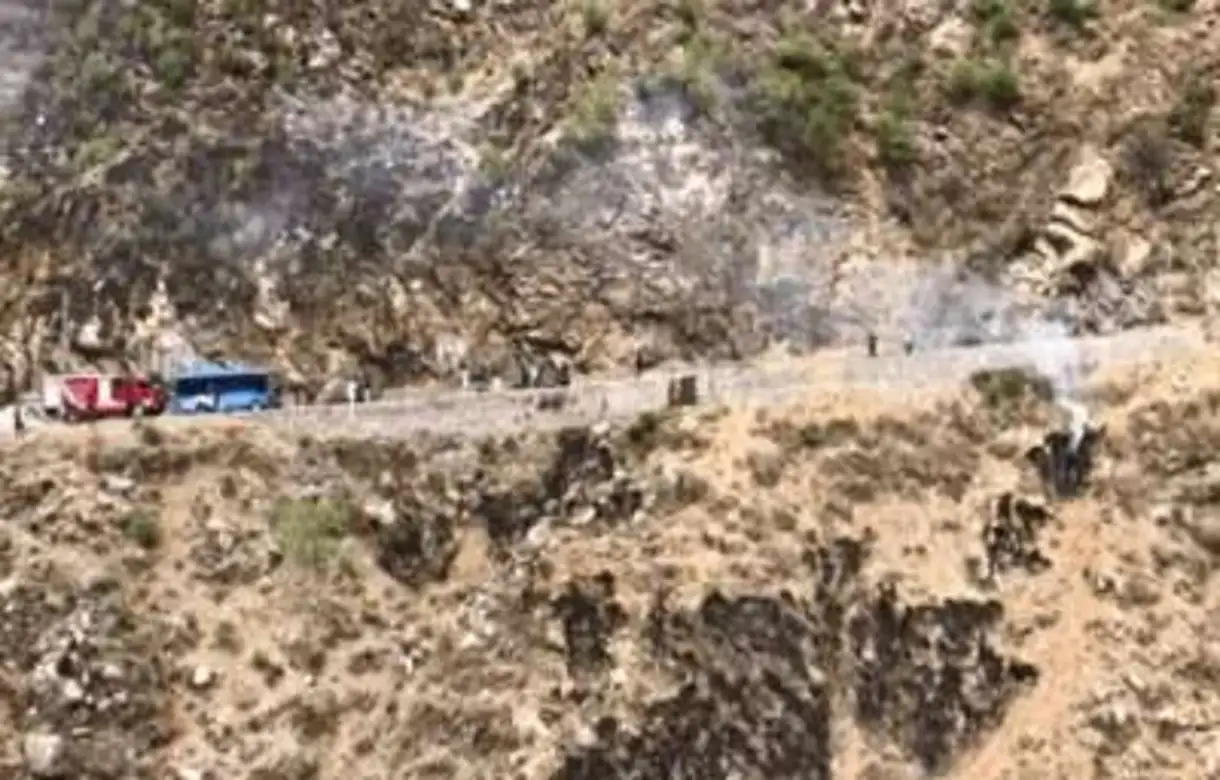
Nearly five Chinese nationals were killed in an explosion during an attack on their convoy by a suicide bomber in northwest Pakistan on Tuesday. Reportedly, the suicide bomber rammed an explosives-laden vehicle into a convoy of Chinese engineers travelling from Islamabad to their camp in Dasu, situated in the Khyber Pakhtunkhwa province.
Regional police chief Mohammad Ali Gandapur said that five Chinese nationals and their Pakistani driver were killed in the attack. As yet, none has claimed responsibility for the attack. Bisham Station House Officer (SHO) Bakht Zahir asserted that the incident was a suicide blast and the authorities concerned were collecting the evidence.
The Station House Officer further added that security arrangements were tightened at the spot and the bodies were being shifted to a hospital. He added that they will investigate from where and how the vehicle of a suicide bomber came and how it happened. Notably, this is the third major attack on Chinese interests in Pakistan within a week.
Previously, two attacks hit an airbase and a strategic port in the southwest province of Balochistan where China is investing billions in infrastructure projects. Several Chinese engineers and Pakistani construction workers have for multiple years been working on hydroelectric projects as part of Beijing’s Belt and Road Initiative in the western province of Khyber-Paktunkhwa.
Notably, Dasu is home to a significant dam project, has been a target of previous attacks. Earlier in 2021, the attack in Dasu resulted in the deaths of nine Chinese nationals, along with two Pakistani children. The incident occured when a bus carrying Chinese engineers and workers to the Dasu Hydropower Project site was targeted.
There was confusion surrounding the nature of the attack initially, with some reports suggesting it was a bus accident. Nonetheless, subsequent investigations revealed that it was indeed a terrorist attack. The bus was hit by a blast, leading it to plunge into a ravine.
-
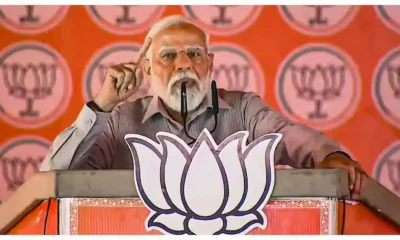
 2024 Lok Sabha Elections22 hours ago
2024 Lok Sabha Elections22 hours agoPrime Minister Narendra Modi says RJD is responsible for destroying Bihar, slams Lalu’s party over various corruption cases
-

 Cricket news24 hours ago
Cricket news24 hours agoIPL 2024: Travis Head smashes brilliant century, Pat Cummins takes 3 wickets as Sunrisers Hyderabad defeat Royal Challengers Bengaluru by 25 runs
-
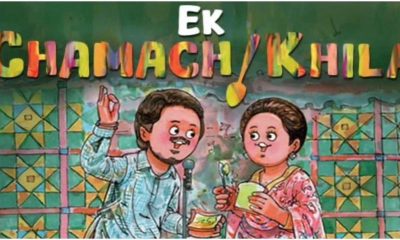
 Entertainment21 hours ago
Entertainment21 hours agoAmul pays tribute to Diljit Dosanjh, Parineeti Chopra starrer Amar Singh Chamkila
-
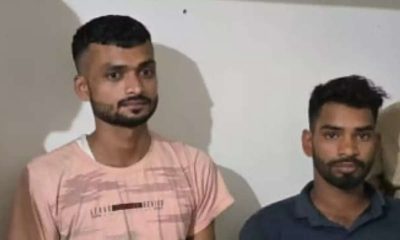
 India News24 hours ago
India News24 hours ago2 shooters arrested from Gujarat for firing outside Salman Khan’s house
-
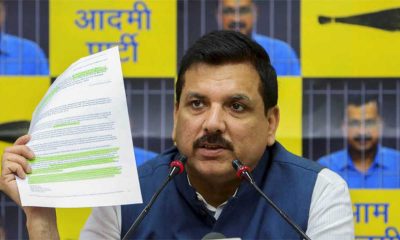
 India News22 hours ago
India News22 hours agoMy name is Arvind Kejriwal and I am not terrorist: Sanjay Singh reads Delhi CM’s message from Tihar Jail
-
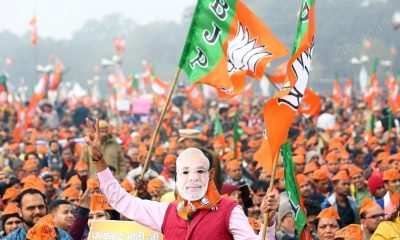
 2024 Lok Sabha Elections22 hours ago
2024 Lok Sabha Elections22 hours agoLok Sabha elections 2024: BJP releases 12th list of candidates, Udayanraje Bhonsle to contest from Satara
-

 Entertainment19 hours ago
Entertainment19 hours agoVikrant Massey’s 12th Fail to release in over 20,000 screens in China
-

 Food19 hours ago
Food19 hours agoBengaluru outlet selling gold and silver panipuri goes viral

